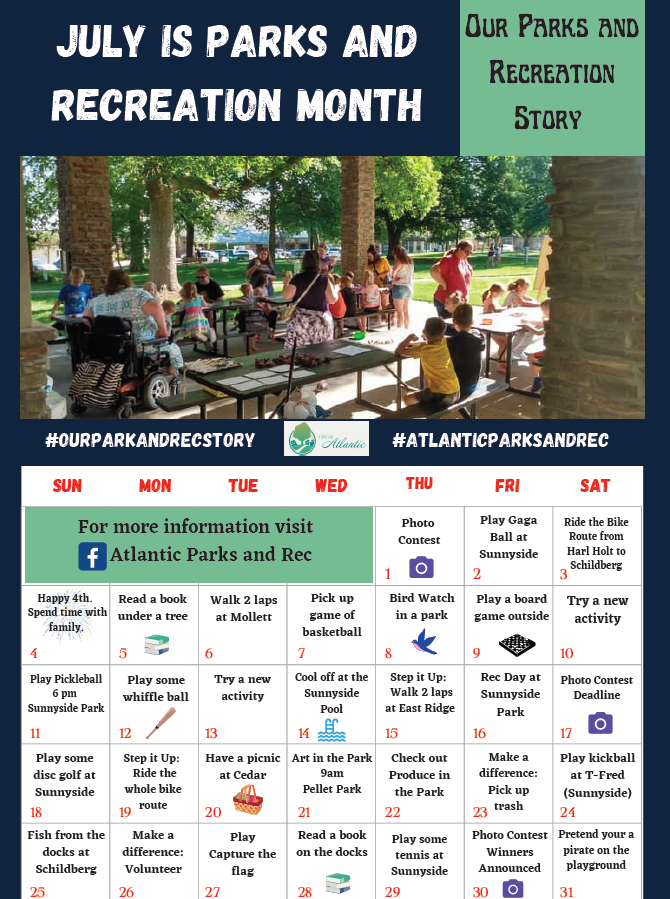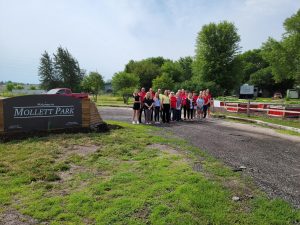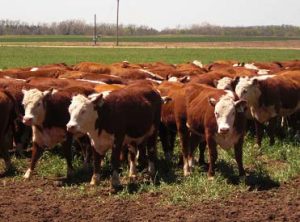CLICK HERE for the latest market quotes from the Iowa Agribusiness Network!
CLICK HERE for the latest market quotes from the Brownfield Ag News Network!
CLICK HERE for the latest market quotes from the Iowa Agribusiness Network!
CLICK HERE for the latest market quotes from the Brownfield Ag News Network!
July is National Parks and Recreation Month. Atlantic Parks & Recreation Department Director Bryant Rassmussen says Atlantic Parks and Recreation has put together a calendar of events with some options, to help you celebrate Parks and Recreation Month. Rasmussen says “We encourage everyone to get out and enjoy what the Atlantic Parks and Recreation have to offer. Whether it is on the calendar or your own preference, we hope you enjoy the great outdoors.”
He reminds patrons of the parks and others who just want to explore the great outdoors, that “We have a number of recreational equipment options available, free of charge to the you, to be checked out.”
Rasmussen also encourages you to follow Atlantic Parks & rec on Facebook, as each day they will put out a post with information on that day’s activity. As you are out there enjoying the parks, take pictures and use #ourparkandrecstory and #atlanticparksandrec. The first hashtag is the national one for the month and the second one is for the Atlantic Parks & Rec Department. Bryant wants you to help “Show the nation what Atlantic has to offer.”
(Radio Iowa) – State parks and lakes have been busy in the first holidays since things reopened after the pandemic and that is expected to continue once again for the Fourth of July. D-N-R boating law administrator, Susan Stocker, says some people will already take off today (Thursday) — and things will be crowded. She says the campgrounds, parks and waterways will be full as everyone wants to get out and celebrate. Stocker says you should do a thorough check of your boat before heading out — including a count to be sure there is a life jacket for everyone. “A lot of people like to use the logic that they can swim. Wearing a life jacket is the only thing that’s gonna save your life,” according to Stocker. “Unfortunately, approximately 86 percent of all drownings are people who are not wearing a life jacket.”
Stocker says an accident can happen quickly and you can be thrown from a boat. “You’re not going to be able have a life jacket on, and another thing about water.. the life jacket goes in one direction and the boat goes in the other direction and you are not going to be able to find it. So the only way to protect yourself is to be able to wear it before anything happens,” she says. Stocker says one thing you don’t need if you are driving a boat is alcohol. Operating a boat and alcohol don’t mix. People don’t realize and understand that the stressors of the wind, the sun, the glare off the water — all enhance the effects of alcohol. So, the alcohol needs to stay home and make sure everybody is safe,” Stocker says.
Using fireworks is governed by local jurisdictions — but Stocker says one rule is to keep them off the boat. “You certainly do not ever want to light fireworks on a boat at all. Wait until onshore, maybe at the campsite…to make sure it is safe because you do have the gas and vapors and fumes,” Stocker says. She says those gas vapors and fumes can catch the boat on fire or cause an explosion if the fireworks are lit. Stocker says state conservation officers will be out looking for violations and helping keep everyone safer during the holiday.
(Radio Iowa) – A study finds Iowa communities with high levels of nitrates in the drinking water tend to be low-income communities. The Environmental Working Group report found 85-percent of the towns with the highest nitrate pollution were lower income. Nitrate largely stems from farm practices like the overuse of fertilizer and manure. Study author Anne Schechinger says the pollutant is linked to higher rates of cancer and birth defects, even at levels well below the current federal standard.
“We know, since this nitrate in drinking water problem is getting worse, that voluntary conservation is not enough to fix this problem,” Schechinger says. “We really need farmers that are required to stop pollution from going off their farm fields.” Nitrate removal is very expensive, and while some larger water systems may be able to afford treatment, Schechinger says many smaller, rural systems cannot.
“We think we have safe drinking water and that it’s regulated by the federal government so it should be totally okay to drink and not have any health impacts that come from what we’re consuming,” she says, “but it’s just devastating that people have to experience things like cancer just from drinking water every day.” Schechinger says the state needs mandatory conservation practices to limit nitrates from reaching water supplies.
(By Kate Payne, Iowa Public Radio)
(Iowa DNR News) – Since May, state agencies, wildlife rehabilitators, and animal control operators in the Mid-Atlantic United States have received a sharp uptick in reports of sick or dead songbirds. Grackles, starlings, robins, and blue jays seem particularly vulnerable to this mystery ailment, which causes swollen and crusty eyes and neurologic signs, like disorientation, tremors, and loss of balance. To date, a definitive cause has not been identified and the number of affected states has expanded west to Indiana.
At this point wildlife experts cannot rule out some linkage to the Brood X cicada emergence event, as areas with affected birds largely overlap. Biologists in affected states are recommending that residents take down their bird feeders to reduce the possibility of congregating birds and facilitating disease spread. The Iowa Department of Natural Resources (DNR) is tracking this situation and has received no reports of unusual avian morbidity (sickness) or mortality (death) events within the state.
“At this time there is no need to remove bird feeders in Iowa, however we encourage the public to remain vigilant by reporting any unusual sightings of five or more affected birds,” said Dr. Rachel Ruden, state wildlife veterinarian with the Iowa DNR. Reports may be sent to Ruden at rachel.ruden@dnr.iowa.gov or avian ecologist Anna Buckardt Thomas at anna.buckardt@dnr.iowa.gov.
(Radio Iowa) – The U-S-D-A crop report finds the rain last week was helpful –but more moisture is needed. The report shows the amounts of rain varied widely with northwest Iowa still reporting more than two-thirds of its topsoil moisture short to very short. While the districts in the southern one-third of Iowa rated 60 percent or more of subsoil moisture at adequate to surplus levels.
The condition of the corn crop improved slightly — up to 60 percent in good to excellent condition compared to 56 percent last week. Soybean emergence is now complete — with 58 percent of the soybeans rated in good to excellent condition — a one-percent increase from last week.
(Radio Iowa) – Some farmers now have decisions to make after their crops were damaged by hail. Iowa State University Extension held a meeting Friday for those hit in the Plymouth County areas. Crop specialist, Joel DeJong says the hail damage appears to have started east of Le Mars. He says the damage looks to move in a southeast direction all the way east of Kingsley and north of Pierson and stops five or six miles north of Correctional. “The center can be about as wide as two miles wide where it pretty much looks like it annihilated soybeans and corn. And then you’ve got transition areas on both sides So, it’s a very significant area that got hit,” DeJong says.
DeJong says soybeans may be re-planted, but farmers also need to consider the possibility of an early frost. “It kind of depends on what insurance policy requirements are. Each individual needs to start by visiting with their insurance agent, then we can talk about the agronomic side to see how that fits in,” according to DeJong. “We don’t have the full yield expectation of soybeans that we would if we planted in a normal time period. We get into early July and it stays wet into early July — yield expectations about a third –maybe half if we get lucky.”
He says the later the replant happens the greater the chance frost could wipe out the crop before it matures. He says farmers may be able to utilize small cereal grain cover crops such as rye, oats, or wheat. He says it’s probably early to get a cover crop established and some may want to plant forages to help supplement livestock feed. DeJong says some farmers may decide they don’t need to take any action. “Not everybody is going to have to replant. There’s some fields on the edges if looks like we’ve got some yield loss — be the best choice is probably to salvage the crop,” DeJong says.
The crops specialist reminds farmers to check first with their crop insurance company before making any decisions.
(Radio Iowa) – The U-S Supreme Court has overturned a lower court ruling that now leaves open an option for refineries to apply for blending exemptions for renewable fuels. The executive director of the Iowa Renewable Fuels Association, Monte Shaw, says the ruling is disappointing.
“A really backward reading of agency discretion, saying that because it might be read this way they have to read it this way….in all the work we’ve done, I’ve never had a court take that approach,” Shaw says. He says the worst part of the ruling is it keeps the issue alive.
“You can’t extend something you don’t have — and if the majority would have seen it that way — then the refinery exemption nightmare would have been over, because I think you’d be down to only two or three refineries that could even apply,” according to Shaw. Shaw says the positive side is this only part of the lower court ruling and the rest still stands.
“There are very strict criteria to get a refinery exemption from the R-F-S, and if those provisions are properly enforced, then the vast majority of these applications will be denied,” Shaw says.
The Supreme Court ruling overturned the lower court ruling that refineries have to have a history of receiving Renewable Fuel Standard blending exemptions to apply for an extension of an exemption.
The Atlantic Chamber Ambassadors visited with Grow Another Row on Thursday, June 24th, 2021. The Ambassadors visited with Claire Smith who is the new Grow Another Row coordinator. The Ambassadors also learned about everything that Grow Another Row is a part of and all they do for the community. With Claire’s guidance, Grow Another Row can plant and grow many different produces including, potatoes, onions, tomatoes, peppers, and more. Claire is originally from Griswold and currently attends Northwest Missouri State University where she studies Agronomy and Horticulture. Claire enjoys attending meetings weekly where she can learn and bounce ideas off other people in similar roles.

Left to Right: Rachel Czaja, Jim Kickland, Krysta Hanson, Donnie Drennan, Jennifer McEntaffer, Bryant Rasmussen, Anne Quist, Marcus Daugherty, Dolly Bergmann, Kathie Hockenberry, Dr. Keith Leonard, Steve Tjepkes, Dawn Marnin, Tori Gibson, Carole Schuler, Claire Smith, Cathy Booth, Kate Olson, and Brigham Hoegh.
Grow Another Row is a program that started in 2020 with the goal to encourage, support, and network local growers for food donations. Grow Another Row works directly with local food pantries to try and put food on as many tables as possible. Any grower is encouraged to participate! There is no registration process and food may be donated whenever available.
The Masters Gardeners are offering an online course for growers in the Atlantic area. The cost of the course is $195 and will run August 30th – November 5th. Visit www.extension.iastate.edu/mastergardener to register. The deadline to participate is Thursday, July 1st.
For more information visit the Healthy Cass County Facebook Page, www.facebook.com/HealthyCassCounty
(Radio Iowa) – A massive “COVID-friendly” beef processing facility is planned for southwest Iowa that promises to create hundreds of jobs and boost the region’s economy by more than a billion dollars a year. Project developer Chad Tentinger is founder and owner of TenCorp, a cattle industry construction firm with offices in Des Moines and Marcus. The newly-formed Cattlemen’s Heritage Beef will construct the 325-million dollar plant in Mills County. “We’ll be the first state-of-the-art new facility built in western Iowa in more than two generations,” Tentinger says. “We will employ up to 750 workers and our estimated annual economic impact is $1.1 billion to the local economy.”
Tentinger says the plant will fill a “critical gap” between conglomerates and under-sized lockers that aren’t equipped to meet the needs of consumers, producers or retailers. He notes several years of weak cattle markets and strong retail prices demonstrate that now is the ideal time to build. Tentinger says, “What we’ve seen over the last two years with, obviously, interruptions in the economy has shown that over the last 20 years, we have added capacity through feedlots in the Midwest with high quality cattle and we just simply have not kept up with the capacity to process those cattle.” 
A news release says workers at the plant will have an average annual wage of $55,000, plus benefits. At capacity, Tentinger says the facility will be able to process up to 15-hundred head of cattle per day. Tentinger says, “I think a large portion will come from Iowa but I think, just based on location, obviously, we will draw out of eastern Nebraska and eastern South Dakota also.” The coronavirus outbreak forced the temporary closure of some Iowa meatpacking plants last year with deadly outbreaks among the workforce. Tentinger says this plant will be built with the advantage of having seen what’s happened with COVID-19. “Larger spacing, more room inside the plant, layout, taking all of that into consideration, with state-of-the-art new equipment, new spacing, new requirements,” he says. “It will be the first plant built with COVID-friendly in mind.”
The facility will be built along Interstate 29 in Mills County near the Pottawattamie County line and south of Council Bluffs. Construction is to begin in the spring of 2022 with opening in the winter of 2023.
– – – – –
Governor Kim Reynolds released a statement this (Friday) morning: “Iowa has a reputation for producing safe, reliable, and quality products that feed our nation and a growing world population,” Reynolds said. “TenCorp, Inc.’s new facility will add greater stability, processing capacity and value to our state’s agriculture industry. I am excited about this project and what it means not only for Iowa’s cattle industry, but the continued growth and expansion of Iowa agriculture.”